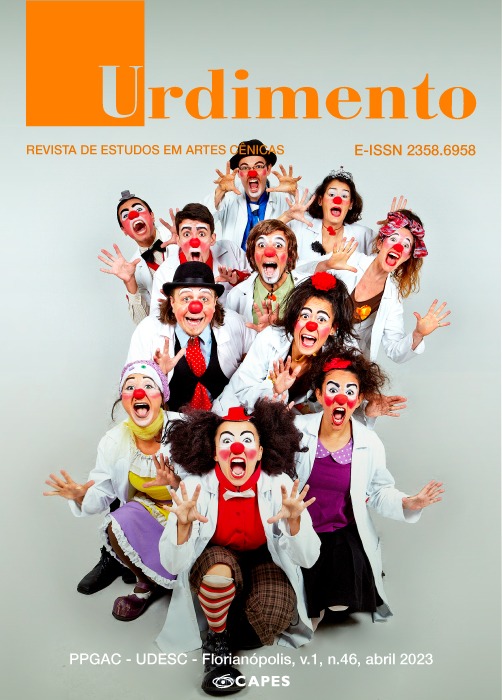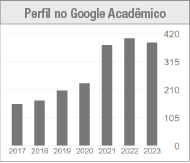Mothers in Rebellion – an analysis of artivism in clowning
DOI:
https://doi.org/10.5965/1414573101462023e0111Keywords:
native peoples, clowning, desclownization, affectionAbstract
This article presents the investigation of artivism in clowning, having as a source of analysis the caravans of the group “Mothers in Rebellion” and thus problematizing aesthetic and ethical issues of these artistic actions. Therefore, this research began its course by describing the reality and the political and ethical position of the caravans with the “Clowns in Rebel” in “Learning to be Rebel”. Then, with “Affective artivism”, reflections are developed on the philosophical concept of affection and artivism as a tool that enhances the action of joy. The research then developed the concept of declowning in “From personal failure to collective failure”, thus expanding to reflections on the renewal of the practice of clowning based on the concept of nhandereko and teko porã, expressions that in Guarani represent “good living”.
Downloads
References
ABREU, Ana Carolina Fialho. Hotxuá à luz da etnocenologia: a prática cômica Krahô. Dissertação (Mestrado em Artes Cênicas) - Universidade Federal da Bahia, 2015.
DEL BOSQUE, Andrés. La tribo imaginaria. Rebento, São Paulo, n. 9, p. 102-120, dez. 2018.
DELEUZE, Gilles & GUATARRI, Felix. O que é filosofia? Rio de Janeiro: Editora 34, 1993.
FERRACINI, Renato; FEITOSA, Charles. A questão da presença na Filosofia e nas Artes Cênicas. ouvirOUver, Uberlândia, v. 13, n. 1, p. 106–118, 2017. Disponível em: https://doi.org/10.14393/OUV20-v13n1a2017-8. Acesso em: 27 abr. 2023.
BONFITTO, Matteo. Entrevista com Erika Fischer Lichte. Conceição/Conception, Campinas, v. 2, n. 1, p. 131–141, 2013. Disponível em: https://doi.org/10.20396/conce.v2i1.8647719. Acesso em: 27 abr. 2023.
FREIRE, Paulo. Educação como prática de liberdade. Rio de Janeiro: Paz e Terra, 2002.
KRENAK, Ailton. Caminhos para a cultura do bem viver. São Paulo: Cultura do Bem Viver, 2020.
MARTINS, Christiane de Fátima. O espectador da performance urbana artivista: uma análise da recepção da intervenção Cegos, do Desvio Coletivo. Tese (Doutorado em Artes) - Universidade de São Paulo, 2021.
MUNIZ, Zilá. A improvisação como elemento transformador da função do coreógrafo da dança. São Paulo: Hucitec, 2021.
PRADO, Ivan. Entrevista concedida a Paula Bittencourt, por telefone em 23 jan. 2023.
SANTOS, Boaventura de Sousa. Para uma sociologia das ausências e uma sociologia das emergências. Revista Crítica de Ciências Sociais, 63, outubro 2002: 237-280. Acesso em: 23 out. 2022.
SPINOZA, Benedictus D. A ética. Belo Horizonte: Autêntica, 2007.
Published
How to Cite
Issue
Section
License
Copyright (c) 2023 Urdimento - Revista de Estudos em Artes Cênicas

This work is licensed under a Creative Commons Attribution 4.0 International License.
Copyright Statement
The articles published by the magazine are free to use. The copyright is all assigned to the magazine. The articles whose authors are identified represent the expression from the point of view of their authors and not the official position of the journal Urdimento. The author (s) undertakes whenever publishing material relating to the article published in Revista Urdimento mention the said publication as follows: This article was originally published by Urdimento magazine in its volume (put the volume), number (put the number) in the year of (put the year) and can be accessed at:
http://www.revistas.udesc.br/index.php/urdimento
This work is licensed under a Creative Commons Attribution 4.0 International License.




